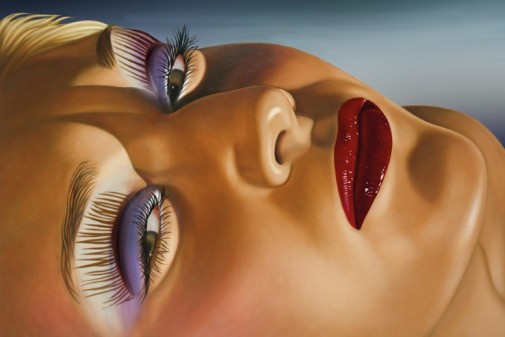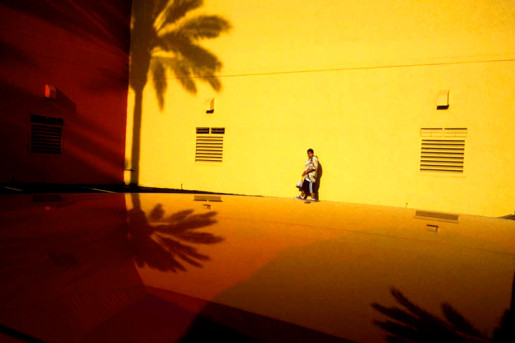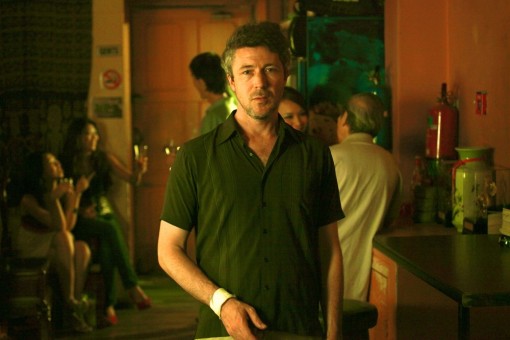
Caspar Urban
“The task would be not to grasp art, but first to grasp what is ungraspable about art”
Theodor Adorno
“The greater the work of a thinker…all the richer is what remains unthought in that work, that is, what emerges for the first time thanks to it, as not yet been thought”
Martin Heidegger
“Cryptic” could be a go-to word for critics describing “Mister John,” the quietly impressive sophomore feature from Irish husband-and-wife team Joe Lawlor and Christine Molloy, but it’s ultimately the film’s avoidance of mystery that proves so effective and unnerving.”
Guy Lodge
Last posting I was thinking about the increasing tendency to demonize the poor in film and TV. That the blatant propagandizing of militarist valentines like Lone Survivor, was now bleeding into the very form of film and TV narrative, and to almost all mediums of expression. That there is a tendency in directors (and producers) to replicate the way the military and police view the general public; in other words film as a medium of surveillance (at least when looking at ordinary lives…sic). There are strange aspects of this phenomenon, however, in which all of humankind is treated as if samples on facial recognition software. This also links to something, oddly, I remember Joan Didion writing on the topic of Woody Allen’s films (from the Annie Hall period).
“This notion of oneself as a kind of continuing career—something to work at, work on, “make an effort” for and subject to an hour a day of emotional Nautilus training, all in the interests not of attaining grace but of improving one’s “relationships”—is fairly recent in the world, at least in the world not inhabited entirely by adolescents.”

Richard Phillips
That film and TV is largely made by an educated (sigh) 20%, overwhelmingly white, bourgeois class is clear; but how this sense of “self” is, increasingly, one produced at least in part, by a self help culture, a therapy culture, is not so clear. But the narcotic of visible success plays on this, the branding of yourself includes, if its not predicated upon, a generalized pop psychological notion of adjustment. Of, per Didion, improving relationships. What that means is, besides the economic advantages of one able to afford therapy, that there is an acceptance of living, of life, as ownership of yourself. But this is about visibility, and there are millions of people who are invisible in media. The poor and working poor are either depicted as rural red neck boobs, or as drug dealing sadistic inner city gangsters.
That sense of ownership connects to police protection of property. Mostly, property before people. Except where some people are seen as property. But it is also connected to earlier forms of human relationships (per Woody Allen) like slavery or indentured servitude. Today, the various city police departments across the U.S. are acting out a drama that is at its core, in part, founded on the idea of improving oneself, something the poor don’t do, and this improved self, this shinier and more appealing ‘thing’ has more value than that shabby threadbare ‘thing’ over there. Human society in this new(ish) reality is viewed as an on-going experiment in ‘working on’ yourself. Its a high school project. Science project or wood shop. An experiment, lifelong, on self improvement. What is actually constituted by this improvement is never defined. Vague neo-Freudian cliches are always one of the fall back positions, of course, this getting-in-touch with your feelings meme. But its more subtle, too. For the Freudian model is far too radical for the purposes of this advanced bourgeoisie, and so things are returned to high school. American society is a high school society. And those who control media are in a constant reiterating of basic themes; witness the POTUS’s use of a wounded soldier, Corey Remsburg, as a symbol of heroic patriotism. Not even the most naive viewer doesn’t see through this manipulation and cynicism, but that hardly matters. For in the same way people who know full well that commercials for laundry detergent are manipulations, will buy the detergent anyway. These devices are just accepted as part of the narrative, and the narrative is familiar, and familiarity reinforces other things, including the idea of cynical narration itself. Remsburg is a detail, part of the production of the ‘real’, and so the entire spectacle plays out like a movie, which it essentially is. The underclass has stopped listening, in a sense. Or they listen differently, and that target demographic of educated white liberals who are the audience for Girls, or Captain Phillips, or The Hunger Games, are flattered that Bob Dylan or various other celebrity actors and performers do Super Bowl commercials for large corporations. Flattered because they feel included. It is a coded nod to their own privilege, without having to say it out loud. I am, as always, forced to ask, how much money is enough money?

Dirk Braeckman
Now the camera treats the upper classes, or the heroes, who work for the upper classes, with a carressing tenderness and adoration. Much like commericals for lux hotels, or diamond rings . There is a misogynist dimension to this, which seems to increasingly find expression in the mirroring of male fantasies, and putting them in a *feminist* context. Tough authoritarian cops are often women. They often have trophy boyfriends who they condescend to. They love guns and hate soft men. This is just the same patriarchal white world view we’ve always had. However, to return to this idea of the lower classes as lacking in pixels, there is an entire range of effects being produced. Not just the message to fear the poor. That is there, and its reinforced by shooting them on CCTV, or at night, in shadows, or simply out of control or through chain link fence. Not in control of their emotions. Drug dealers, crack whores, etc. Meanwhile, agencies of law enforcement are clean, well lit, big windows and fresh air, and tightly regulated. So the underclass is blurred, low resolution, but also these representations, images, cannot ever be part of the long project of image clarification that is that of the ownership class, those Annie Hall inhabitants, who have now time travelled to Girls (HBO).
These are the new upper end bourgeoisie, and they are a consumer class, in the end. They are not producing in terms of aesthetics — and they are engaged, ideologically, (in their mind, often spiritually) in an advanced class in lifestyle success. The basic bedrock belief is in “self”. One of the expressions of this in media is the commodity articulation in representations of the upper classes, and the lack of commodity in the underclass, because everything is lacking. And if an underclass character shows up with a Rolex or Nike basketball shoes, then its made clear that this character lacks a sense of the right priorities. Nothing the propriator class hates more that underlings having nice things. How dare you buy artisanal organic bread with those food stamps!!!

Juan O’Gorman, architect, Casa en Palmas 81, San Angel, Mexico 1929
I wanted to add, that when the ruling class is depicted, in narrative, in film and TV primarely, they are given clarity, as is their set of belongings. One of the standard setting scenes in film today is an upper middle class household, morning in the kitchen, with Dad going off to work, Mom also going off to work, and kids to high school. The husband drinks coffee, they have a designer kitchen with heirloom tiles above the sink, and a water purifier on the tap. The wife will ask the husband to pick up the dry cleaning and he will complain, but agree to do it. He is a laywer, a cop even, a doctor sometimes, or a CIA agent. She is also all of those (and the leveling of these occupations narratively is significant, too). The point is that these specific kitchen items, but they can be bedroom as well, constitute a normalcy, and suggest this couple has jointly embarked on this project of self improvement. At the same time, it suggests stasis. The constant recycling of these daily activities. Sometimes the wife is bread winner, and sometimes this white family is black. No matter, it’s the same fantasy. These stories valorize parenting (verb) as connected to National ideals of service and sacrifice. Family is reiterated constantly (often in almost tribal terms). It also is directly linked to service. Service to the totalitarian Imperialist program of the US. There is a plethora of films in which daughters are kidnapped (Liam Neeson, is now the defacto American dad) and the father must fight off foreign villains to return her to her rightful place at the family home. The echos of virgin sacrifice are obvious, but it also, by logical extension, elevates the idea of state authority (for the father invariably works for the government, but even if he didnt) into the God for whom the sacrifice is intended. This is a metaphoric tale for recapturing lost lands and property from the natives. Returning them to their rightful place in the Empire.

Constantine Manos
The demand for back story, and again, for the ruling elite (and their Hollywood stand in, the phantom middle class) is acute. The motivation is explained with great detail, even if witheld for a while. For the underclass family, there are no virgins kidnapped. And if they are, they are meaningless sacrifices. They die and the police must capture the killer, but the death is not the reason for the urgency. The killer needs to be caught, lest that killer later invade the temple of middle class realism. The realism of these kitchen scenes (for example) serves as the religious underpinning of the narrative. Suburban house as temple. And as repository for the markers of what is ‘real’. And upon the alter of generic home the virgin is to be disembowled, or stolen (kidnapped) and this theft of property must be avenged.
The clarity of the back story, the ‘realistic’ created by details, by commodity details especially, converge in images of light and sharpness. The underclass back story is filmed murky, and explained in murky terms. For history, lineage, doesnt exist in the underlcass. The white family at breakfast is the symbol for ancestory, for legitimation of bloodlines and hence the legitimacy of the society, and of class. Semper praesumitur pro legitimatione puerorum. Children matter if they are part of the “succession”, of proper filiation. There are clear religious sub-texts here, connected to Roman Law, and the idea of immortality achieved by passing on property. So these new narratives of (faux) sacrifice, which enclose ideas of adjustment and and importance of life as a project of risk management (responsibility)are also projections of ruling class fears and desires.

Gunther Uecker
Now it is interesting in aesthetic terms, in narrative terms in particular, to examine films that disrupt this model. The recent Mister John, the second film by Irish husband and wife directors Joe Lawlor and Christine Molloy, is remarkable for all the things that are not in it. The review by Guy Lodge (quoted at the top), touches on the uncanny as it arises here. For the film opens implying a mystery. A dead body floating in the water. In fact, there is little mystery to that death, and the real mystery is in the character of ‘Gerry’ (Aiden Gullin) who seems unable to grasp societal rules. His struggle to understand what is expected of him leads the story toward its metaphysical center. Filmed against the backdrop of colonial architecture in Singapore, the ex-pat community is suddenly a destabilizing symbol exactly because it doesnt belong in this world. ‘Gerry” clearly expects something should happen. He tries to provide meaning but he cannot. His own back story is implied, and while partial it is evident that he cannot make sense of it and we, the audience, don’t really need to either. The viewer shares with Gerry as sort of co-conspirators, the specific mysteries of existence, and the frail scaffolding on which society hangs its demands. It is the post modern existential. Mother died yesterday, or the day before. My brother died and I didn’t know him, but thats Ok because I don’t know myself.

Mister John, dr. Joe Lawlor, Christine Molloy. 2014
This is a film that will never gain much acceptance because it is predicated upon witholding information, and on undercutting all sentimentality. Emotions are the biggest mystery of all for ‘Gerry’. I should note also that Aiden Gullin’s performance is one of those remarkable film appearances that are convincing because the actor understands, instinctively, that the real import of the film lies beyond what he can he convey. Later films will mine this work for the meaning not quite realized, for this is,in a minor way, a singular small masterpiece.
The constant scripting of life today has reached a theatre of the absurd. The Russophobic Olympics, the Woody Allen tititallation saga, and meanwhile food stamp cuts are written into law. I continue to return to questions of ‘space’ in how narrative is constructed today. That a new sensitivity is perhaps the initial step to creating narrative that reclaims some meaning for our daily lives. Adorno wrote that “this abstract and largely mechanical derivation of aesthetics from pre-given philosophies seems to be the essential reason for the fall of theoretical aesthetics”. The fall out of this truth, which he wrote in 1961, is what I see as a distrust of that which lacks the authority of popularity. And popularity is what makes money. I cant count the times I’ve heard writers and artists reference popular cultural product from this position. The absolute Imperial master narrative and production of Imperial products of entertainment that dominate theatres and TV time speaks to the fact that the public today doesnt really think we need art anyway. As the propaganda of the corporate ownership class, via the culture industry and Madison Avenue (worth noting how the Washington Post led the way on this Russophobic smears of Olympics coverage) shape thought, and feeling in the general public, reconciling them to things (Falujah, or the Iraq sanctions, or Guantanamo Bay, et al) that one might think, normally, they would never accept, the role of art has been consciously diminished in media. Cries of elitism, or, for the educated classes, the emphasis on the childish and apolitical. Creating and reinforcing an idea that art is like a toy that children play with, or a game. All the better because the public has reconciled itself to the idea that not growing up is perfectly alright.

Bowling Alley, Hewitt State Hospital (closed), Philadelphia (Opacity)
Popularity also connects to the trivialization of nature; to the instrumental categorizing of nature. Again as Bowie says, discussing Adorno, “Aesthetics matters not when it is a specialized discipline with its own special agenda of questions, but rather when aesthetic issues reveal aspects of other philosophical questions which do not otherwise become manifest.” There is a danger in this discussion, for it easily slips into new age mush. There is always the adaptive counter effect supplied by a system that, on auto pilot, simply absorbs opposition. And if often does this by co-opting. The analytic Anglophone tradition of thought, over the last sixty or seventy years, sees emotional truth, the ‘revealing of the world’ (Adorno) as meaningless. Meaningless because they think in terms of the individual, the ‘self’, the unique brand they have created and how can a single commodity, even an exclusive one, have any effect on the world. There are certainly a good many on the left that as a default mechanism would agree. But Adorno believed, and I think this is crucial, actually, that artworks manifest something of society, something of which it, society, is not aware. The unthought. So deeply engrained is this idea of explaining what something means, that the acceptance of something, an artwork, having no definable meaning, is tantamount to its meaning nothing. Which of course raises other questions about the meaning of meaning.

Ziggurat of Ur, Iraq. 2000 B.C.
There is always another narrative. Which is not exactly the sub text. For it’s held somehow by the narrative, but it comes later, as an effect or result of the existant narrative. It is, clearly, far more complex than this because of several mediating factors, one of which Hegelian philosophy would term ‘nature’. In a sense, I’ve replaced this, for the sake of this discussion, with ‘space’. The rise in the 18th century of ‘natural beauty’ is associated with grand vistas of rivers and moutains. That change, from feudalism and religious dogma, was a change in the idea of the ‘self’. And this certainly impacts all this, but I wanted to focus for now on the human relationship to space, and story. But it is important, even in this adumbrated form, to point out that questions of causality and freedom are implied in anything related to the idea of nature. And here is where Adorno, and Marcuse, and even Heidegger, raised issues about technology and instrumental thought. Today, the question of technology goes almost unquestioned in a sense. Or rather, its immanence in daily life is not questioned. Technology is actually written about constantly, but also used constantly, and its impossible as things stand for it to be otherwise. As Jed Morey said in a recent article, “Most of us are too busy and under too much financial pressure to remove ourselves from the cycle of madness. It’s the capitalist way. You snooze; you lose. Thinking is for the weak. Hard work and perseverance is enough.” For the working class, economic insecurity provides profound anxiety. It is as if there is a two level system of belief. One is clung to, because families have to be fed. The other is internalized, repressed, and deforms the authentic emotions that are kept out of sight.
“The political economy of imperialism would most properly be the study of how the geopolitical conditions for accumulating capital and the disequilibrating effects of military intervention and defensive isolation allow war to operate productively as a means to generate further social wealth”
Randy Martin
We live in the Western world of militarism and control. Of extraction and surveillance. Nature is posited as a theatre of war. The urban landscape is only a micro war zone. For Adorno, the subjective had been dominated by instrumental thought. Nature is the relationship between imperialist intervention and its logical mapping of the world, and the individual is subsumed in this project. The idea of space, as well as the experience of space, is compromised. One sees this in the new architecture of fear, but also in the taught indifference to living space, to the commons, that is seen in the general public. The problem for the enviromental movement or greens is to re-mythologize nature as somehow a mystic force of some sort. The reactionary sentimentalizing of Sierra Club naturalists obscures the possibilities for re-configuring ideas of social change. That aside, Adorno saw art tending toward what is not known, or not even yet existing. Within this are questions of mimesis and space. I’ve obviously written a good deal about the mimetic, but here its useful to question how the hegemony of militarism and Capitalism has erased the experience and awareness of space.

Dr. Atl
As Husserl said, this instrumental neglect of nature has led to the counter realization, in some anyway, that there is something in this ethos of conquest that damages our essential relationship to existence. I’d say, what it does is erase something primoridal in how our idea of “self” is constructed. The illusions of self notwithstanding, the road to a release from the tyranny of binary reductive science is in re-discovering our sense of space. And space is created by text, by narrative (it is other ways as well). The elsewhere, the mimetic space of artworks, is as Andrew Bowie put it “dialectically…consitituted in relation to {the}changing historical other”.
In some ways, if I were to teach, formally, playwrighting again, I would start with a course on the history of architecture, especially its beginning. I posted above a photo of a house designed by Juan O’Gorman, who was only a sort of educated amateur architect, and primarely a painter. But he designed the house in which Diego Rivera and Frida Kahlo lived in Mexico City, and a couple other structures, but in each there is something liberating. One feels his relationship to the political. It is in such observations that narrative must renew itself. Certainly in theatre, anyway.
And I end with a “real” narrative about the state and its fictions.
Real narratives https://www.muckrock.com/news/archives/2014/feb/03/dea-parallel-construction-guides/

Jan Dibbets

Thank you. Brilliant.
Thanks John for bringing this all to light
“Self help” as it constitutes superimposition of the public and social upon the personal and is a common phanstasy of individuals who are not positioned in an adversarial or critical position to mass culture. In actuality it seems to me people are truly passive within the herd and will go to any lengths NOT to change themselves–but going through the motions is hugely popular. Recently I had an interesting project helping out some friends at a non-profit who are developing a meditation app for kids (Don’t laugh, it’s really quite good) I was researching and reviewing various meditation apps for mobile devices. There was plenty of new age music, tinkling chimes, and burbling waters, and a range of styles that were targeted to various age groups, with some really hip graphics for 20-somethings, and of course, one that featured a guru (whose resume was demonstrably bogus after a quick fact check on the web). Nearly every single app focused on “stress reduction”, promised improved health, and better sleep(‘sleep like an ox before its butcher’, as a Buddhist saying goes). Nothing wrong, really, in that people who are not stressed out are more able to go without drugs and alcohol and will be more productive (of whatever they are producing, an open question) However without somehow healing the mass cultural infection of narcissism—which is mostly, but not only, a bourgeois ailment–without the effort of bringing to bear a truly radical view of compassion…which includes critique of oppressive social structures while cultivating an abiding trust in the process of dismantling notions of the Other/ others in a meaningful way, whether in the mindstream or on the street, these self help modalities are useless and the progress is illusory. And that is how “self clinging” generally works, esp, how it works to benefit the economy of exploitation.
Thats so interesting Rita! I happened to test out one of those meditation apps for a 3 week free trial period. While enjoying the app, I also came to that same conclusion. It appeared as if the meditation was a “forgive and forget” kind of philosophy. Depoliticize. Look the other way while power rapes and steals the planet. There has to be a cultural reckoning in addition to a psychological one. Great piece John.
Same. I don’t begrudge, as a matter of principle, those who use depoliticizing mentality (such as the meditation thing you mentioned) as a coping mechanism. I mean, shit, it’s a tough world, with rapid-fire bombardment of information and countless interest groups mediating every detail of your life. I completely get why it would be too much to bear.
On the other hand there are those really nasty, really passive-aggresively pushy “law of attraction” people who insist that if other people, whether individuals or whole groups, are suffering, it must be because they did something to deserve it. It’s not even the idea of sin and punishment — it’s if you’re not successful, if bad stuff happens to you, it must be because you didn’t visualize the good stuff! You didn’t think about it hard enough! Nobody’s punishing you, not even God, it’s just you having insufficient ability to visualize good outcomes and really believe in it! So on some deep down level you not only truly deserve this, but you must LIKE it, in some sense, ENJOY it.
It’s sick. But it’s interesting, I read a book called “Land of Desire” by William Leach, and it’s a fantastic piece of cultural history. It shows the development of New Thought (precursor of New Age) movements in early 1900s and argues that it’s a direct result of the peculiarly American form of consumerism; arguably the first coherent system of spirituality that actively denigrates and disrespects the very concept of suffering, as something that can’t possibly exist in any sense. Suffering is an illusion. It’s all in your head. Etc. etc.
He demonstrates some of the best kind of revisionist cultural criticism in its analysis of the values behind “The Wizard of Oz”. Interesting fact, L Frank Baum was a pioneer in the then-new field of marketing.
“Wizard of Oz” as both a uniquely American kind of fairy tale, as well as an anti-fairy tale as compared to, say, the Grimm type. The values and the narrative conflict is flipped completely inside out. The central fact of the fairytale is no longer a irrational (or you could even say underdetermined) uncanny mask of suffering, intense pain; instead all pain is exorcised, plus the idea of genuine character growth from meeting adversary is neutered — you don’t grow, or gain personality, you only find in yourself what you didn’t know you already have — so you end up with something peculiarly sterilized and rational (overdetermined, you could say).
Actually I’ve never seen the terms “underdetermination” and “overdetermination” applied to literary criticism, as a specific way of describing how the irrational and uncanny (or lack thereof) in narrative works. I wonder if I’m the first? It would be interesting to elaborate on that train of thought… hmm…
I just realized I.A. Richards used those terms, albeit in a slightly different context, but basically the opposite of the way I was trying to use them. Silly me…
Yes…..Exir, Wizard of Oz is really fascinating in the context you speak of. And Ive often looked at Grimms for example, when i was in Poland, and thought, well, I get where this comes from. And its connected to suffering, but to the transformative part of that. How allegory works,…..and myth is created somehow. And I think now, the sick are stigmatized for sure. Weakness, moral weakness. One must work through pain….endure it silently, and dont take pain killers. Its this weird masculinist thing which is obviously linked to sado masochism and domination. ANd more, with punishment. So I think this is correct…self help is now like muzak spirituality. And @Rita….i wrote about sleep….but also in that lecture at Giroux’s site, i talked about how poorly people sleep. And sleep less. For they live in a hyped over amped NOW, all the time. No future, no utopia, and certainly no history.
Good post, John. You mentioned the idea of immortality achieved by passing on property – and I had an “oh shit” moment. To some, the secret of immortality, not that it can ever really be achieved, laid in leaving behind works of art. Now it’s an inheritance, a trust fund, land, a name that will open doors for you. I just finished watching Rossellini’s “The Age of Medici” and although it’s best as a lecture than a mini-series, the ideas of the Renaissance were thrust forward by architecture and analysis of space, which reminded me of your ideas, but also by incorporating nature and science. How funny that the very concepts of Alberti have been now reduced to pass on capital. People’s names go on buildings, the George Lucas building at USC film school, Wrigley field, as a way of advertising. Advertising = immortality. I’m kind of ranting here and thinking as a I go. I need to sit with this for a while.
Also, really looking forward to watching Mister John. No sign of it in theaters or DVD here in the states.